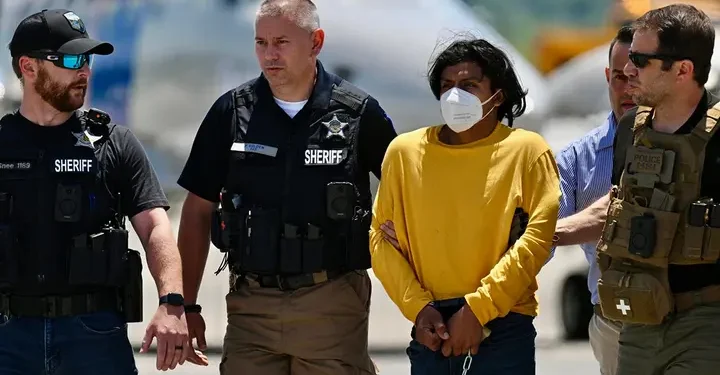In a bold move, the Los Angeles City Council voted unanimously last week to declare L.A. a “sanctuary city,” effectively cutting off municipal assistance to federal immigration authorities. The 13-0 vote aligns with similar moves across the U.S. but has sparked heated debate due to the ongoing arrests of noncitizens linked to violent crimes in the area.
What Does This Mean?
Sanctuary city policies are designed to limit local cooperation with federal agencies like Immigration and Customs Enforcement (ICE). Advocates argue this protects immigrant communities, but critics say it shields dangerous individuals from accountability.
ICE data shows that in 2024 alone, the agency arrested 1,263 noncitizens in the L.A. metro area, 715 of whom had prior criminal convictions. Between 2021 and 2024, ICE apprehended nearly 20,000 noncitizens in the area, with 36% having criminal records.
Concerning Cases
Some of the arrests highlight serious crimes:
- A 39-year-old Salvadoran convicted of sexually assaulting a child under 14.
- A 47-year-old Mexican national wanted for human trafficking and sexual exploitation.
- A 41-year-old Mexican who had been convicted of selling cocaine in Orange County in 2017.
Despite these cases, the city council insists the sanctuary city status is a step toward protecting immigrant families from unnecessary deportations.
Criticism and Federal Implications
Not everyone agrees. Prominent attorney Leo Terrell called the decision a move that could make L.A. a “magnet for criminals.” He argued, “By protecting those with criminal records, the city is undermining federal authority and public safety.”
ICE maintains that its focus is on individuals posing a direct threat to national security or public safety. Federal laws also give U.S. courts the authority to issue removal orders for individuals in violation of immigration law—an estimated 1.4 million are currently awaiting deportation.
Legal experts believe the federal government could challenge sanctuary city policies in court, testing their constitutionality if they impede federal enforcement efforts.
A Heated Debate
Supporters of the sanctuary city stance argue it fosters trust between immigrant communities and local authorities, encouraging cooperation without fear of deportation. Opponents, however, worry it may inadvertently provide safe havens for those who pose a threat to public safety.
The debate over sanctuary cities remains as polarized as ever. With L.A. now firmly in the spotlight, this decision could set the tone for similar policies in other cities across the country.
What are your thoughts on sanctuary cities? Are they a step toward protecting vulnerable communities or a potential risk to public safety? Hit reply and let us know your take!





















Can you be more specific about the content of your article? After reading it, I still have some doubts. Hope you can help me.